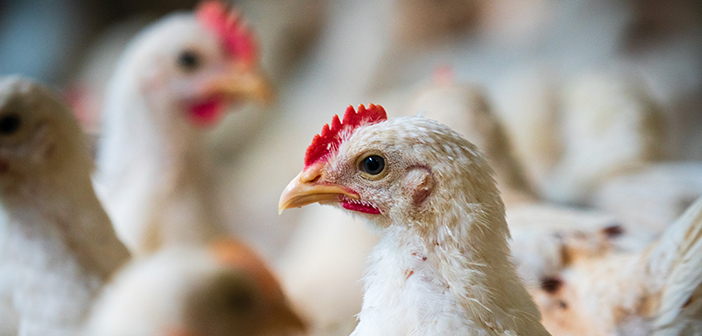Avara Foods has described as ‘opportunistic’ and ‘without merit’ the threat of a legal claim for compensation for those affected by pollution in the river Wye.
Avara Foods operates within the catchment of the river Wye, however all its birds are housed, and there is no run off from Avara’s farms into the river. Manure in the supply chain reaches the land when it is used as fertiliser by other farmers for their food and forage crops.
Manchester-based legal firm Leigh Day said it was planning to bring a claim against Avara Foods, alleging that chicken farming is polluting the River Wye and surrounding land. Court proceedings have not yet been filed.
The firm said people who live in Powys, Herefordshire and Monmouthshire could join the no-win-no-fee legal claim, alleging private and public nuisance.
The claimants may include people affected by the pollution such as swimmers, canoeists, walkers, clubs, organisations, anglers and businesses whose lives and trade has been hit by the worsening condition of the river, or the nuisance effects on those living near chicken farming, such as smells, insects and noise. The businesses affected will include those working in tourism, hospitality and leisure, Leigh Day said.
The civil claim is being handled by a team led by Leigh Day partner Oliver Holland, who said: “We consider that the significant decline in the health of the River Wye over the last few years is clearly linked to the significant increase in intensive poultry farming in the main brought about by Avara Foods.”
The claim is supported by charity River Action. Chair and founder Charles Watson said: “With around a quarter of the country’s chickens now being reared in the catchment of the River Wye, the waste emitting from this totally unsustainable concentration of poultry production has blighted communities across the region.”
A spokesperson for Avara Foods said: “This is a year-old, opportunistic attempt to profit from a serious environmental issue. It has no merit and is not supported by evidence or expert opinion. It ignores the long-standing use of phosphate-rich fertiliser by arable farms as well as the clear scientific data showing the issue of excess phosphorus considerably pre-dates the growth of poultry farms in the Wye catchment. We are confident that there is no case to defend but, if forced to do so, we would pursue Leigh Day to recover any costs we incur.”
According to a report from Lancaster University, called RePhokUs, Avara Foods represents a small proportion of the total estimated phosphorus in the catchment. Analysis of manure samples in 2022 show a maximum 800t of phosphorus originating from manure in Avara’s supply chain. This compares to a total 6,100t of phosphorus from livestock manure in catchment.
Avara’s poultry volumes in the catchment have remained stable since 2018, and has reduced by around 15% in the last two years.


